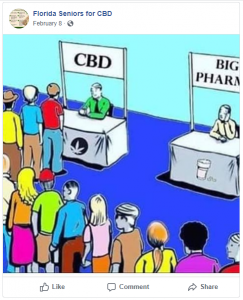 “The New Herbalism” is a term coined by Steven Modello M.D. over at the Science-Based Medicine website, to describe the recent emergence of cannabis products for all sorts of ailments, serious and otherwise. Herbalism, by the way, is the practice of making or prescribing plant-based preparations for therapeutic or medicinal use.
“The New Herbalism” is a term coined by Steven Modello M.D. over at the Science-Based Medicine website, to describe the recent emergence of cannabis products for all sorts of ailments, serious and otherwise. Herbalism, by the way, is the practice of making or prescribing plant-based preparations for therapeutic or medicinal use.
Herbal medicine has a long history in America and the cannabis plant is a natural for this category. In addition to THC, it contains CBD, which isn’t psychoactive but is thought to have value in the treatment of some medical conditions. That’s the good news. The problem is that CBD products may impact the other drugs we happen to be taking.
That includes a long list of common medications, from antibiotics and blood thinners to sedatives and antidepressants. Here’s an overview:
CBD May Possibly Interfere With Your Daily Medication
I bring this up because of its obvious importance to seniors, who happen to be the fastest growing segment of medical marijuana patients. The aged are often put on a daily regimen that includes a number of prescribed medicines. CBD products could affect how well those prescribed medicines work, or interact with them in unhelpful ways.
That’s an area where we do not welcome surprises.
Because CBD products are classed as supplements rather than medications, they remain largely free from regulation. People think of them in terms of nutrition rather than medication. That’s a mistake. They may not be potent enough to do much good, but they are capable of interfering with the liver’s management of other drugs.
I know folks who swallow twenty different supplements every day at a cost of several hundred dollars a month. Supplement use has become so common that physicians now routinely ask about it during office visits.
I wouldn’t attempt to talk someone out of using a supplement if they’re already convinced it helps. They’d just get mad. I do know that supplements can be safe, under the supervision of a knowledgeable practitioner who is aware of possible interactions.
But I’d be willing to bet that most people do not go the physician route. They hear that cannabis oil is good for one ailment or another, pluck a bottle off the shelf and start taking it. See what happens. They’re not getting high, they reason, so what could go wrong?
Now you know.










